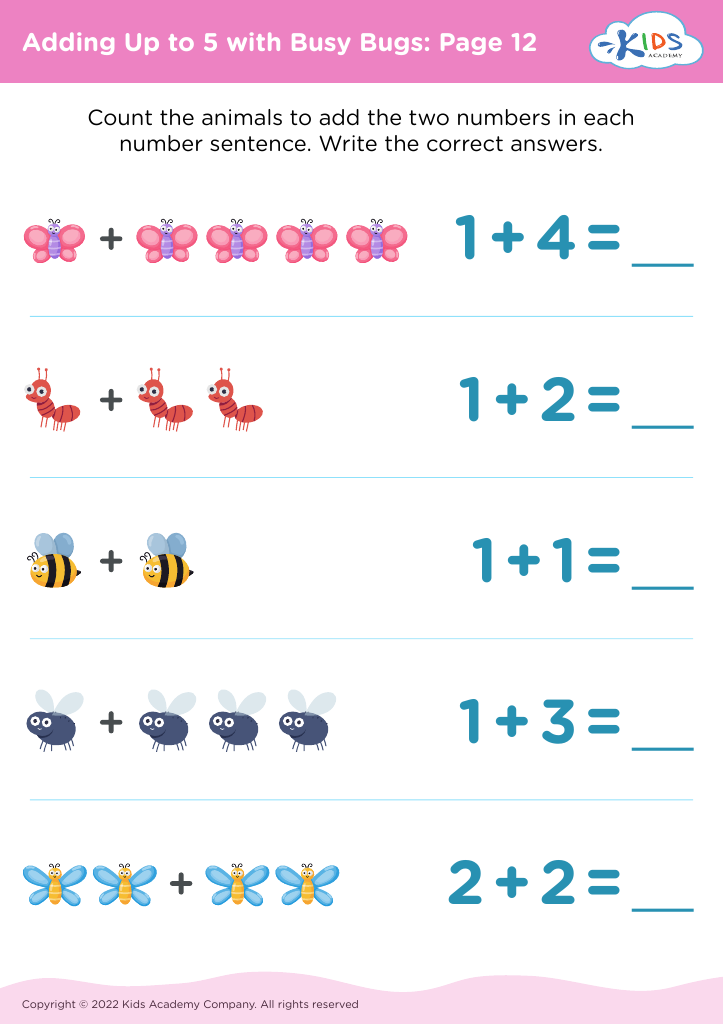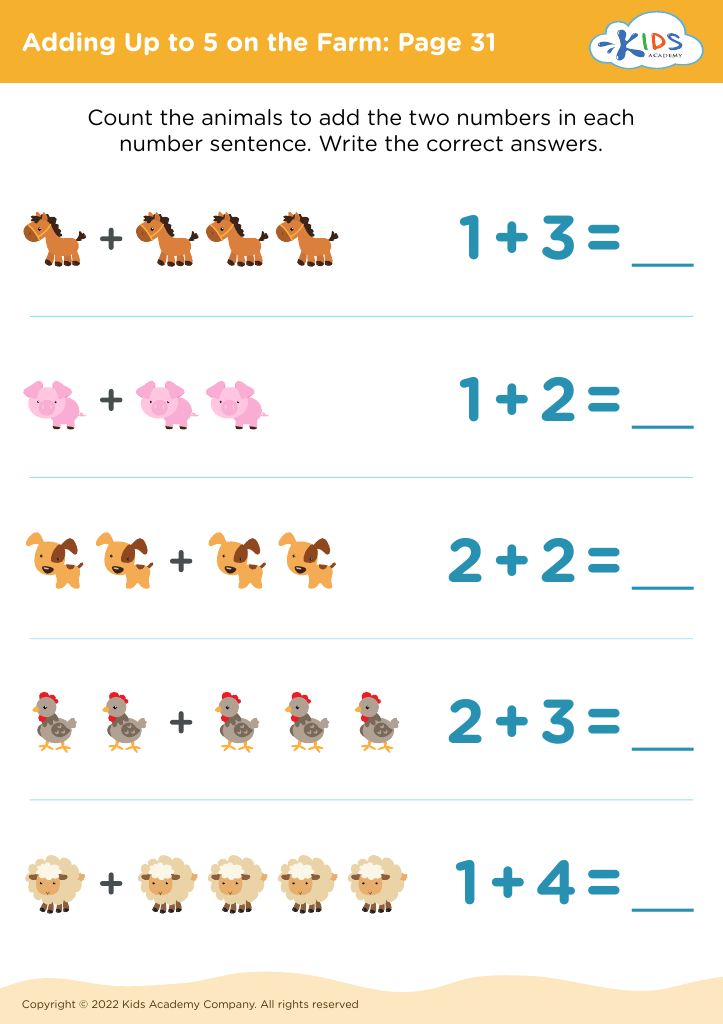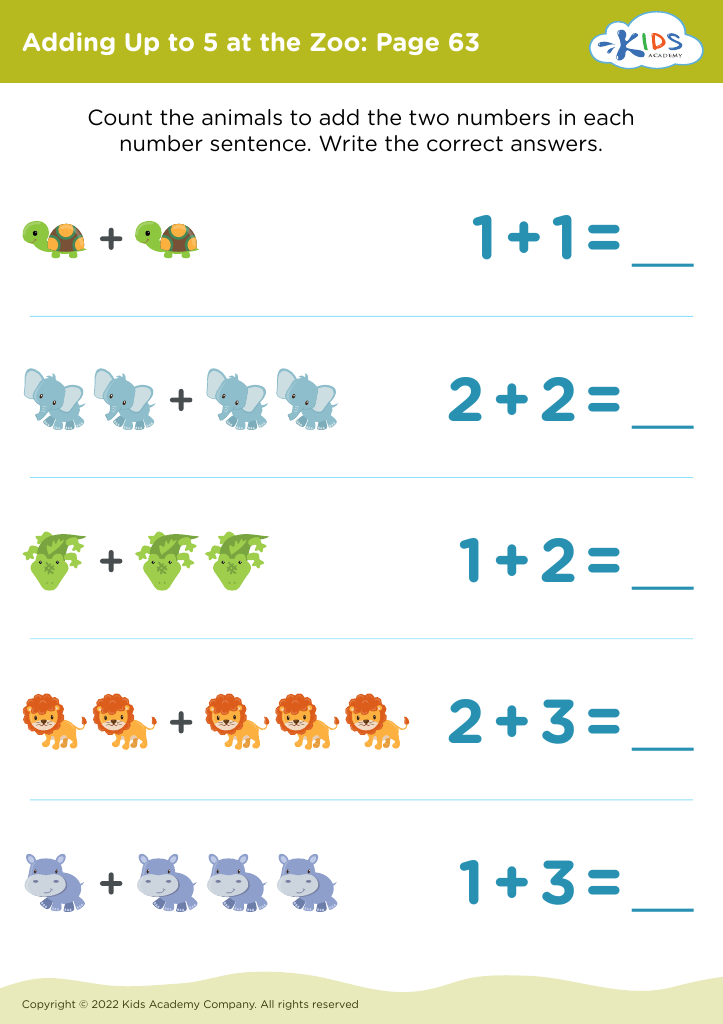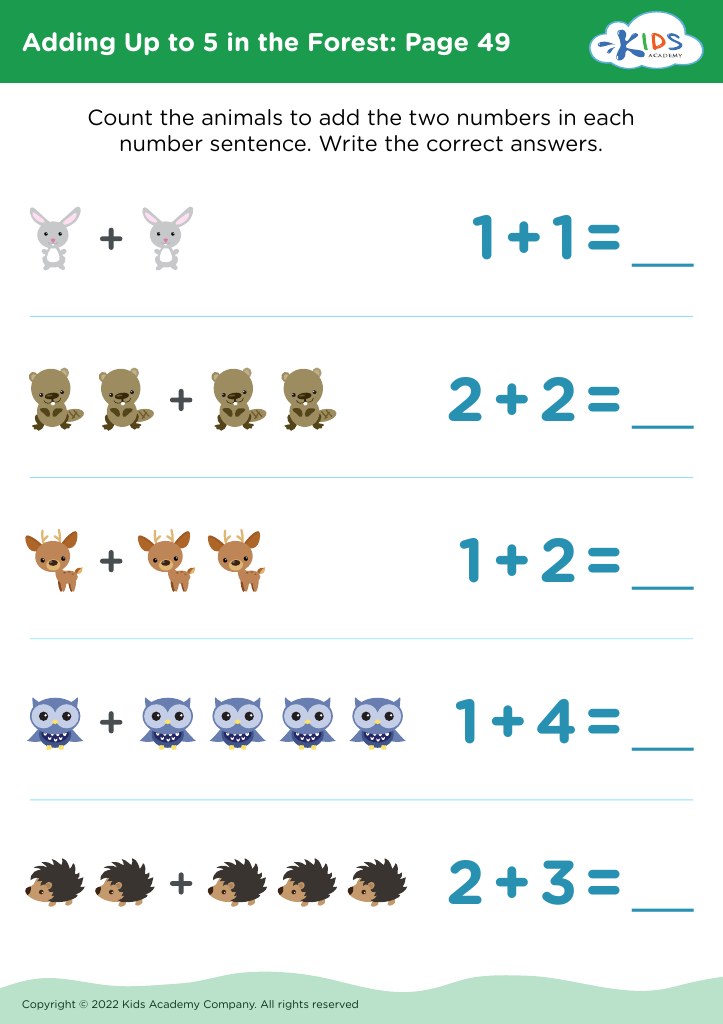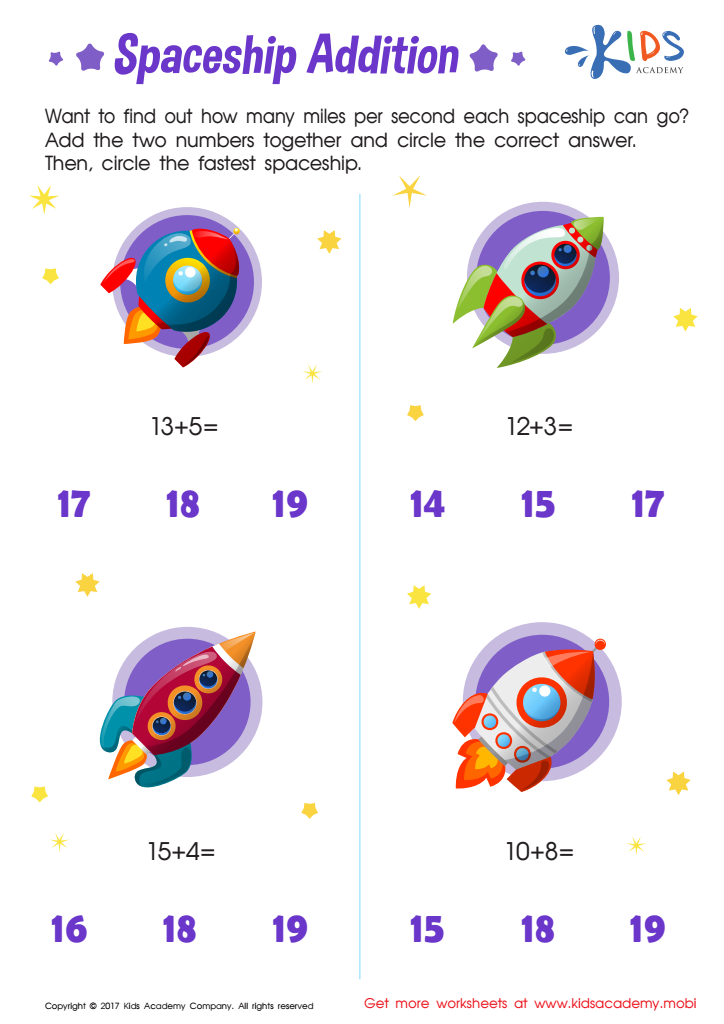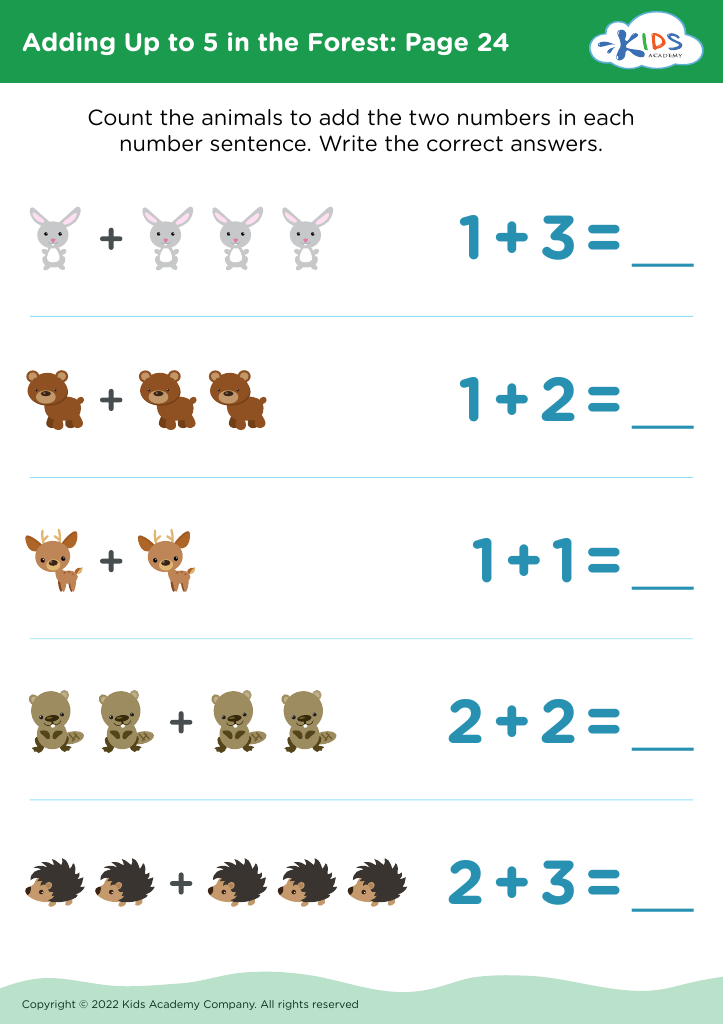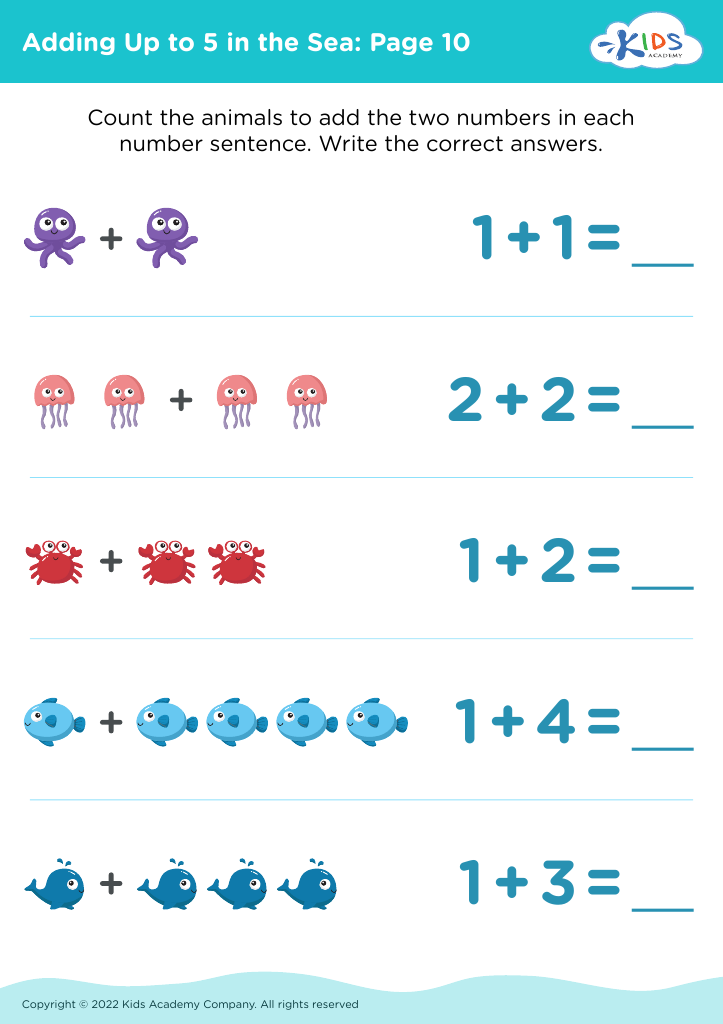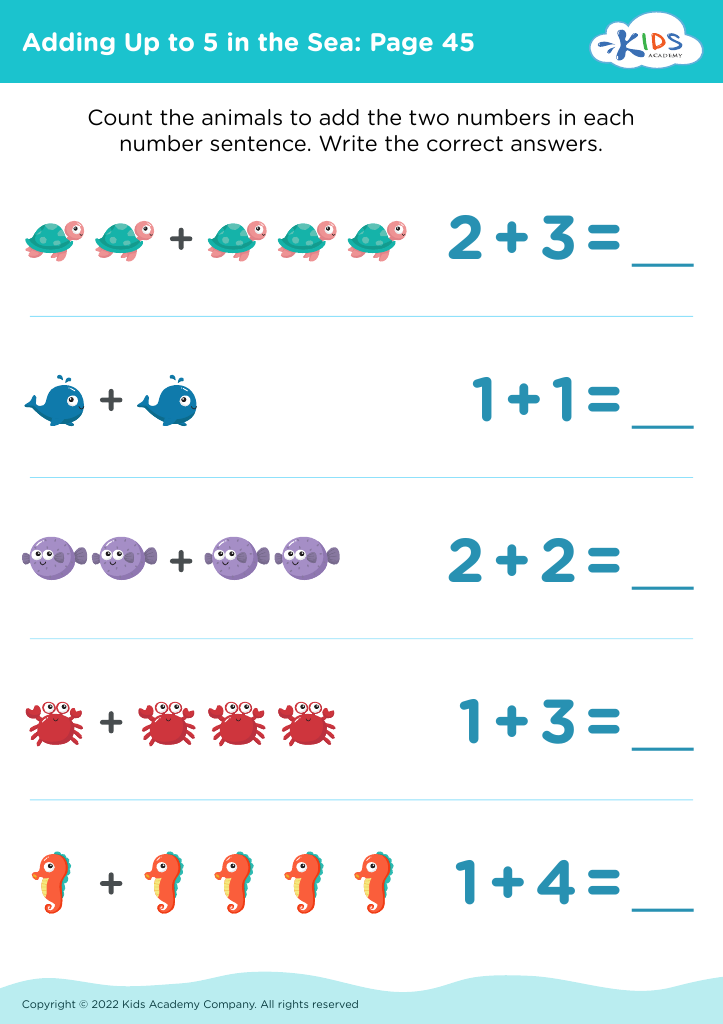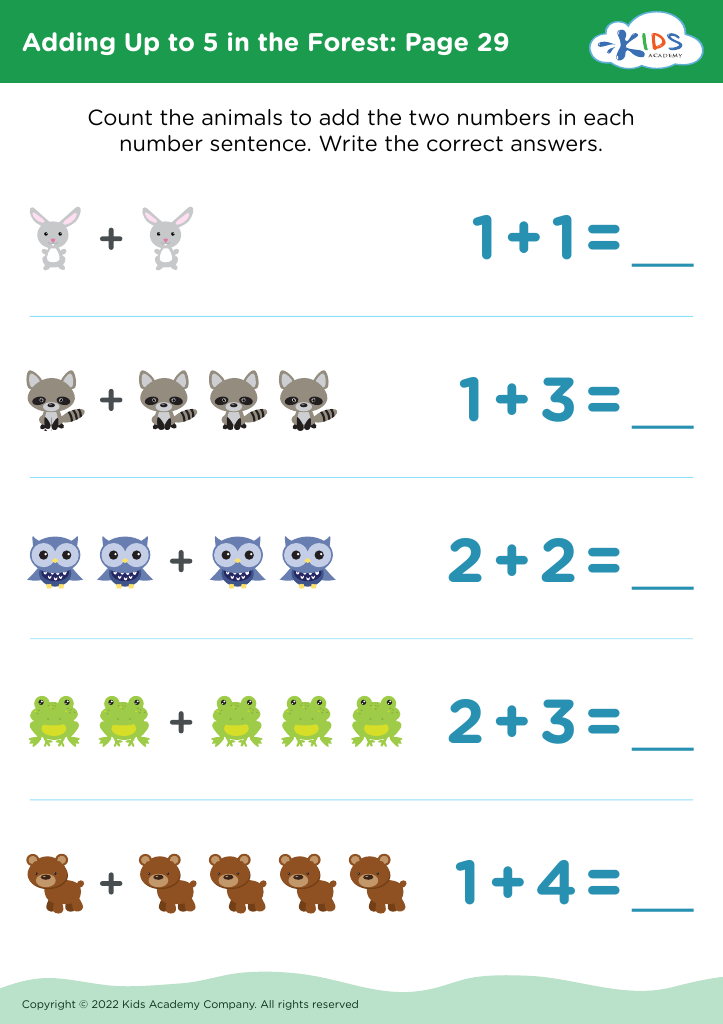Problem-solving abilities Math Worksheets for Ages 3-4
30 filtered results
-
From - To
Discover our engaging Problem-Solving Abilities Math Worksheets designed specifically for children ages 3-4. These worksheets foster critical thinking and enhance problem-solving skills through fun, interactive activities. Your little learners will explore shapes, patterns, and basic addition and subtraction concepts while building a strong mathematical foundation. Each worksheet is crafted to promote cognitive development and encourage independent thinking, making math enjoyable and accessible at an early age. Perfect for parents and educators seeking to nurture young minds, our collection offers a variety of creative challenges that spark curiosity and enhance learning. Start your child's math journey today with our delightful worksheets!
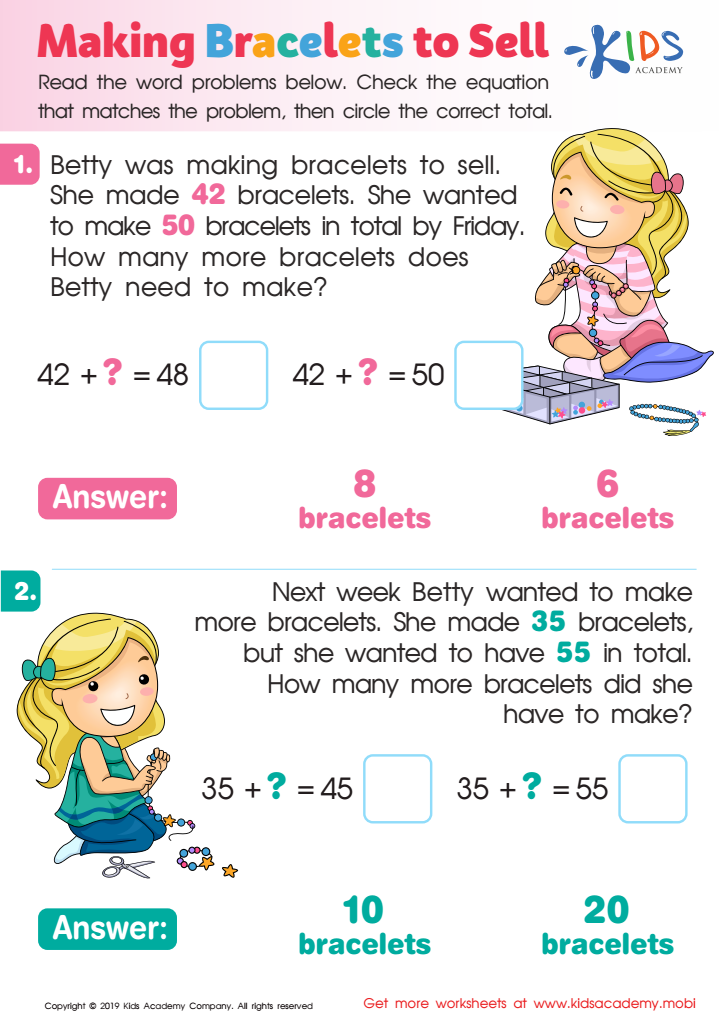

Making Bracelets to Sell Worksheet
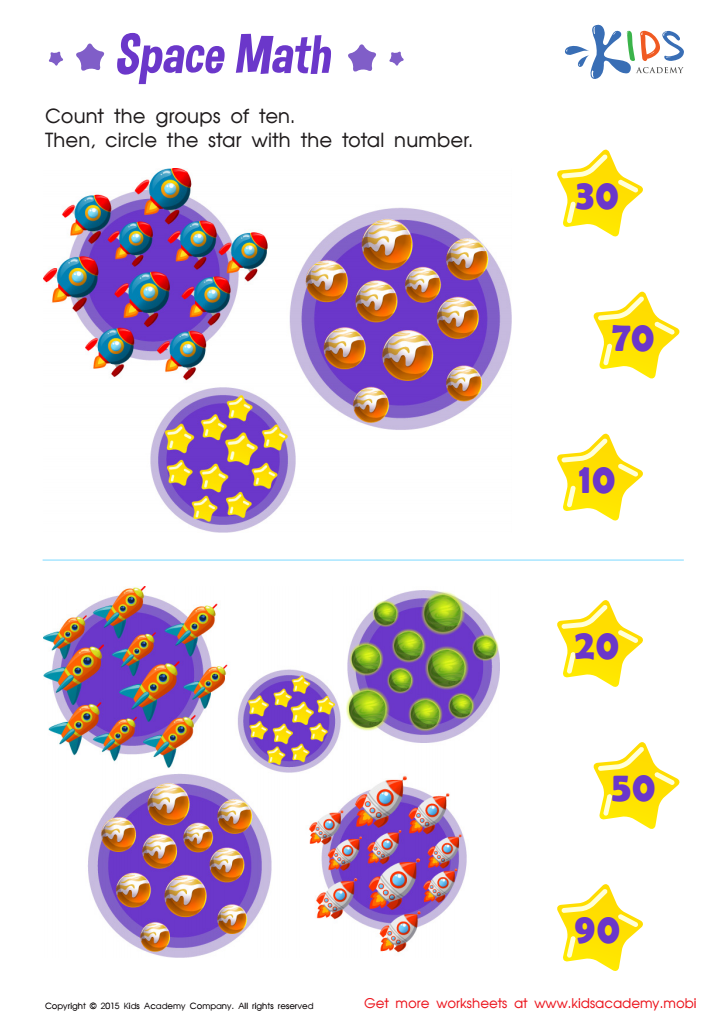

Learn dozens: Space math Worksheet
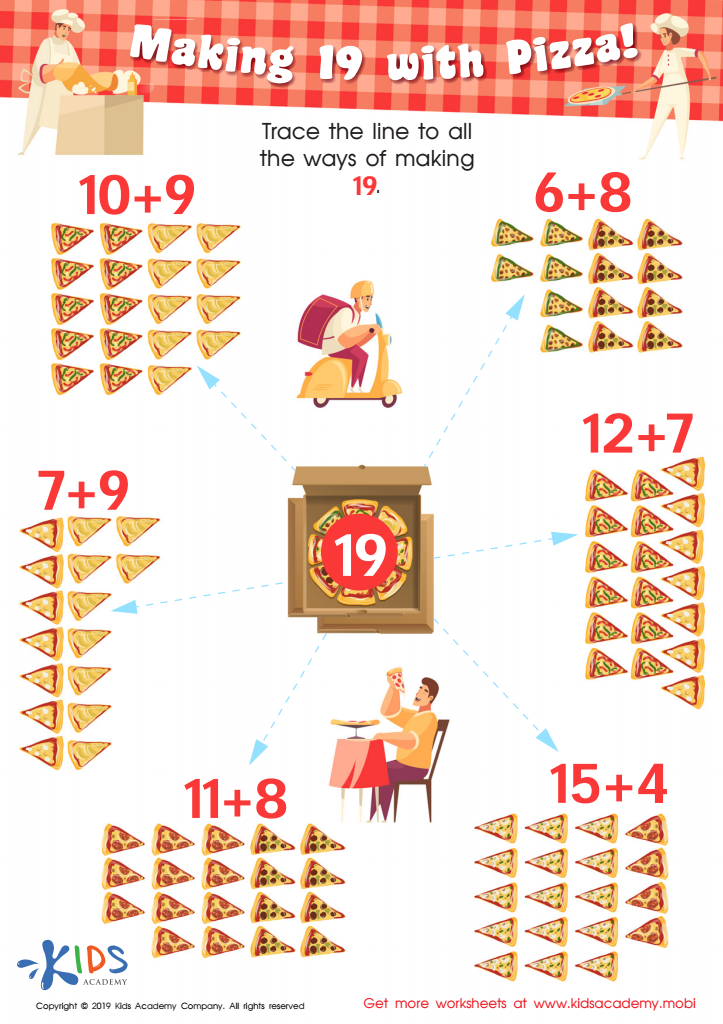

Making 19 with Pizza! Worksheet
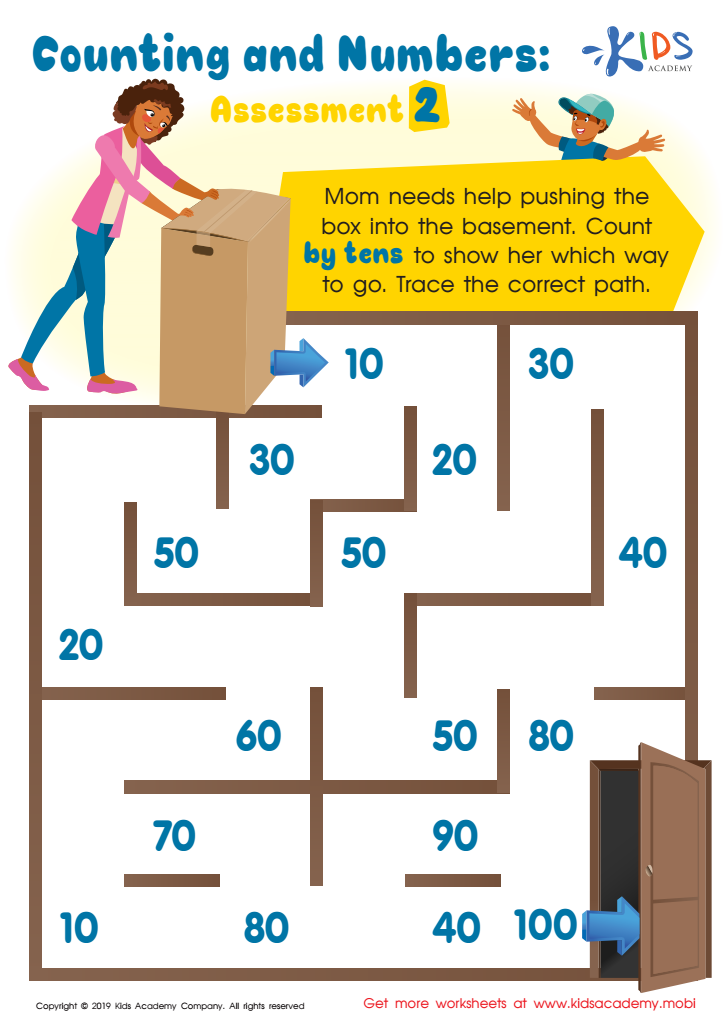

Counting and Numbers: Assessment 2 Worksheet
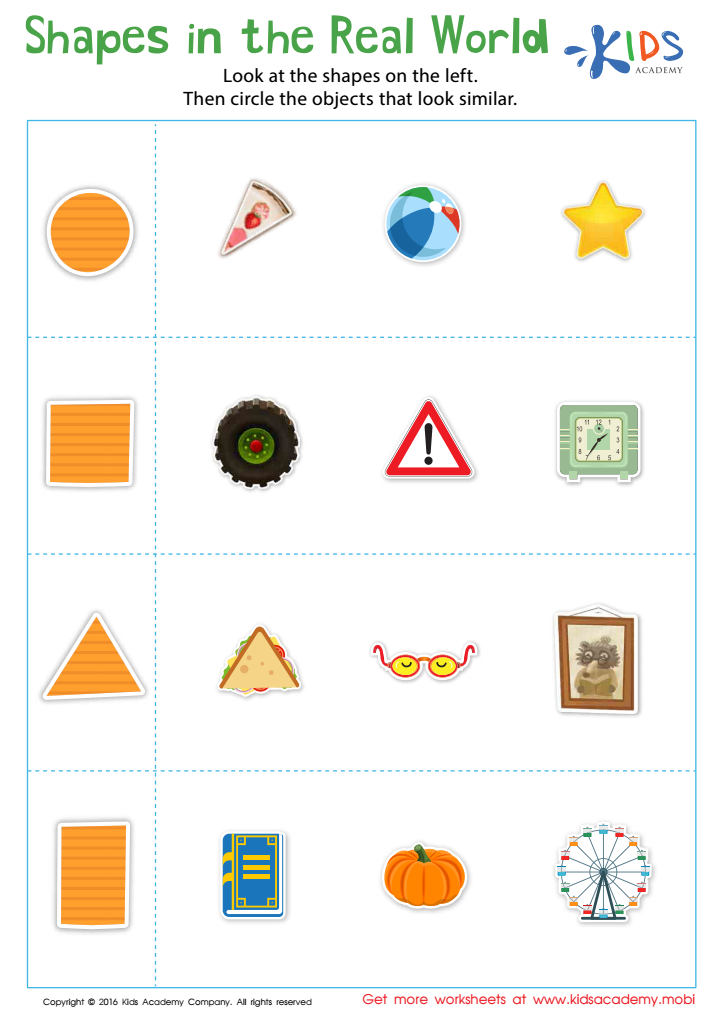

Shapes in the Real World Worksheet
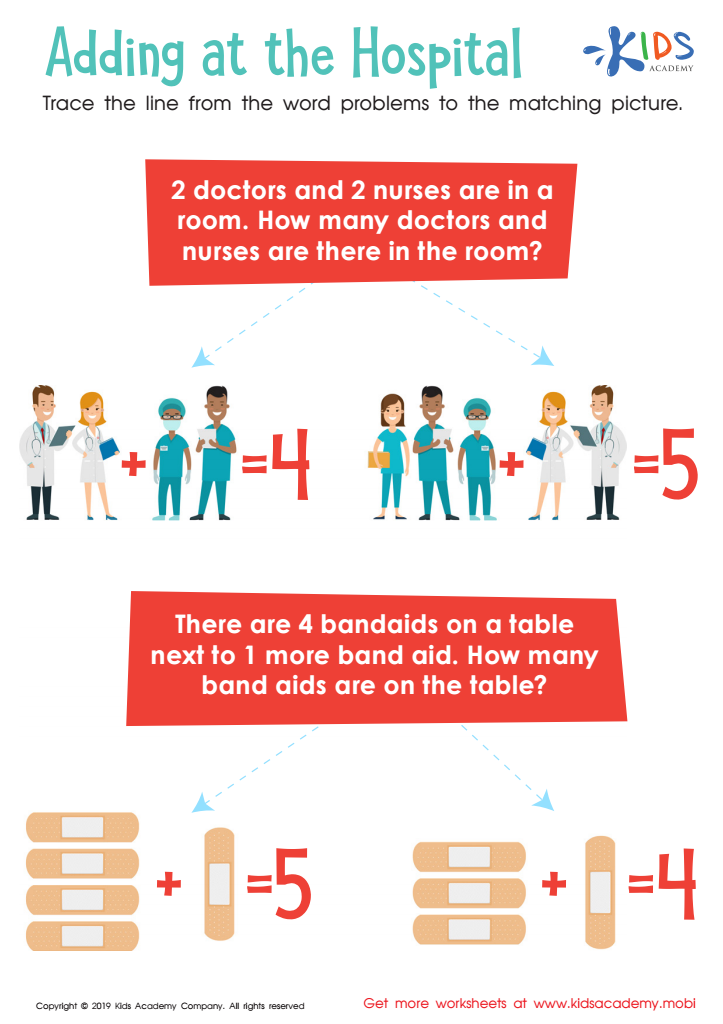

Adding at the Hospital Worksheet
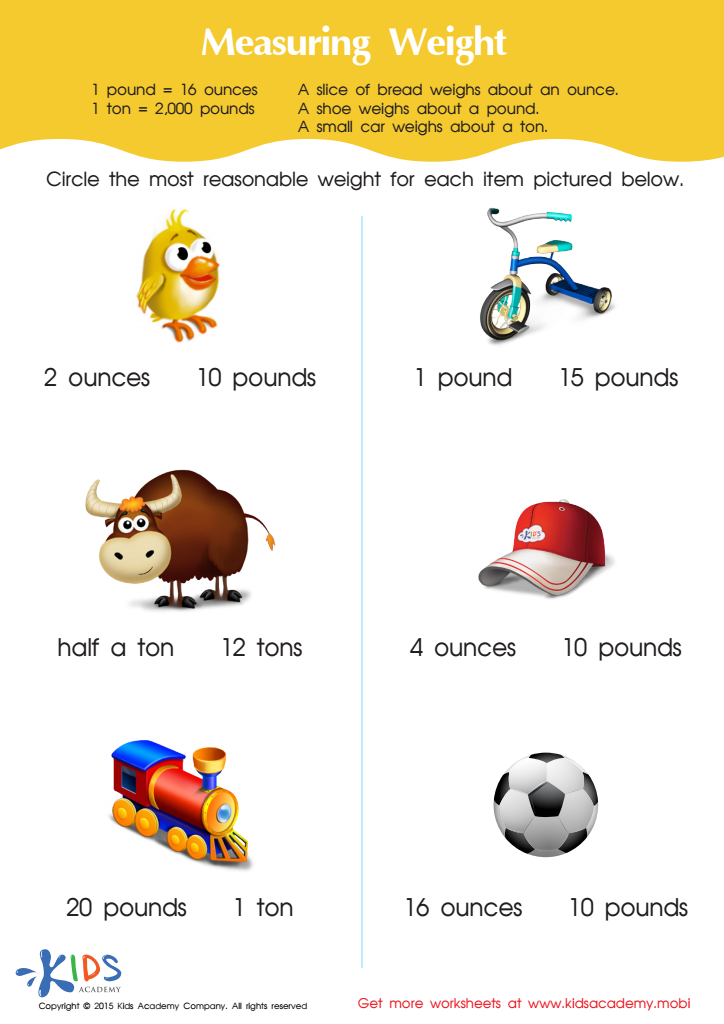

Measuring Weight in Ounces, Pounds and Tons (Part 2) Worksheet
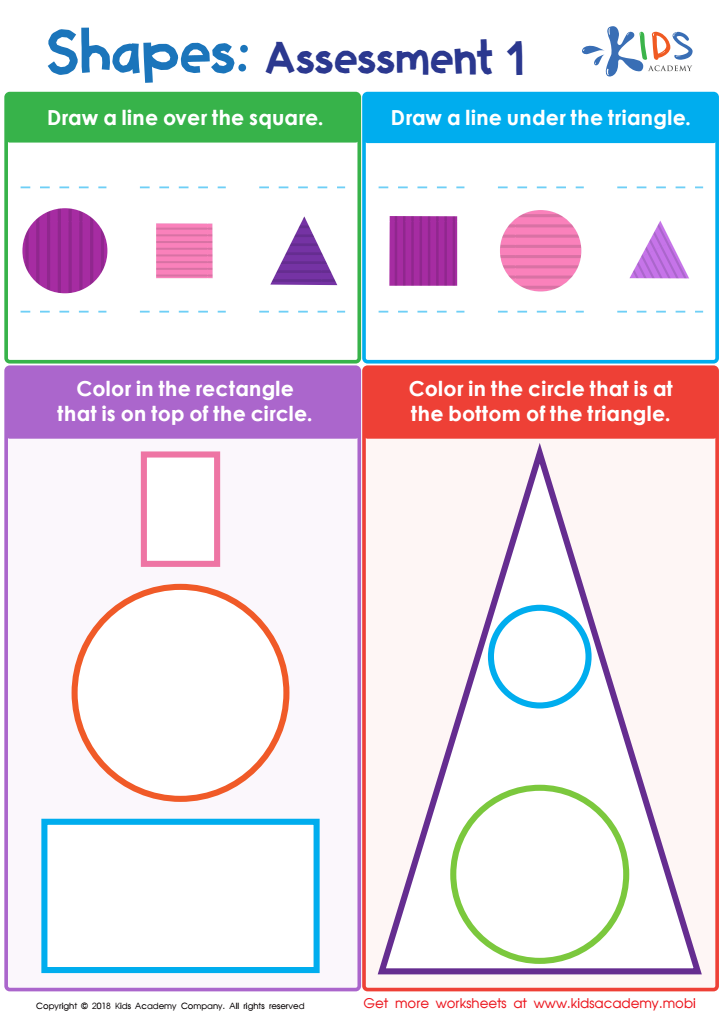

Shapes: Assessment 1 Worksheet
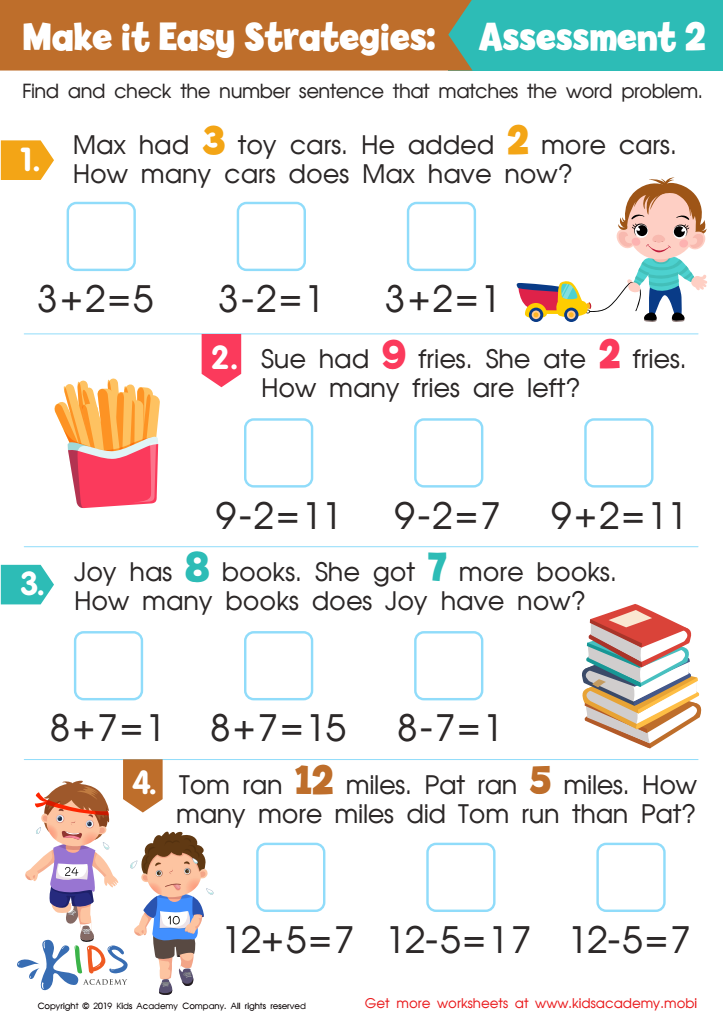

Make it Easy Strategies: Assessment 2 Worksheet
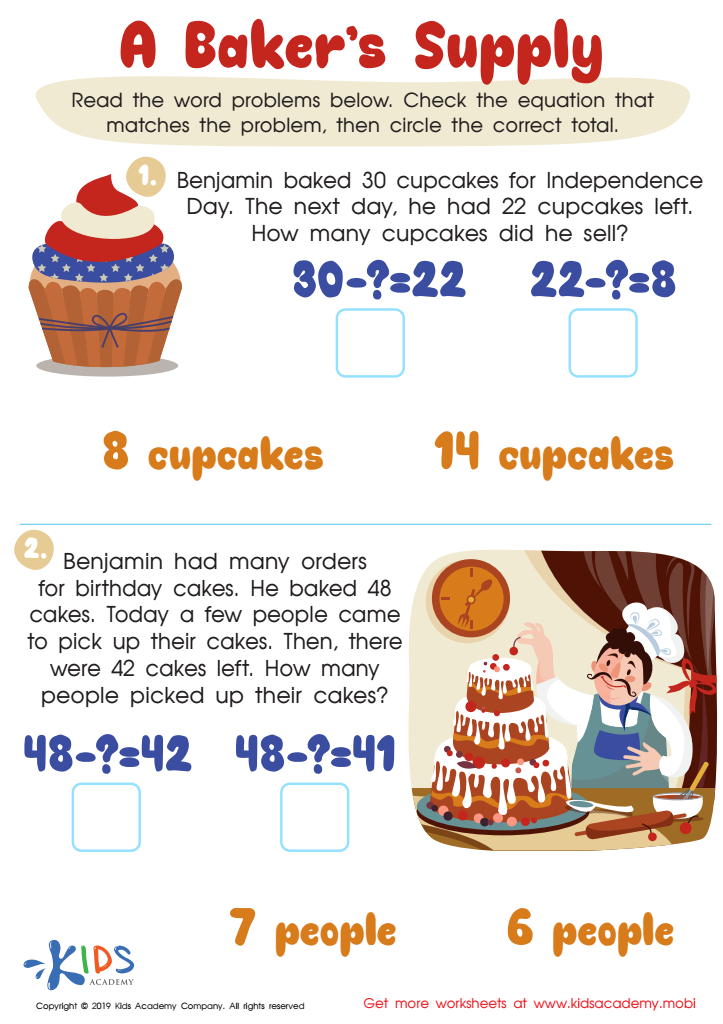

A Baker's Supply Worksheet
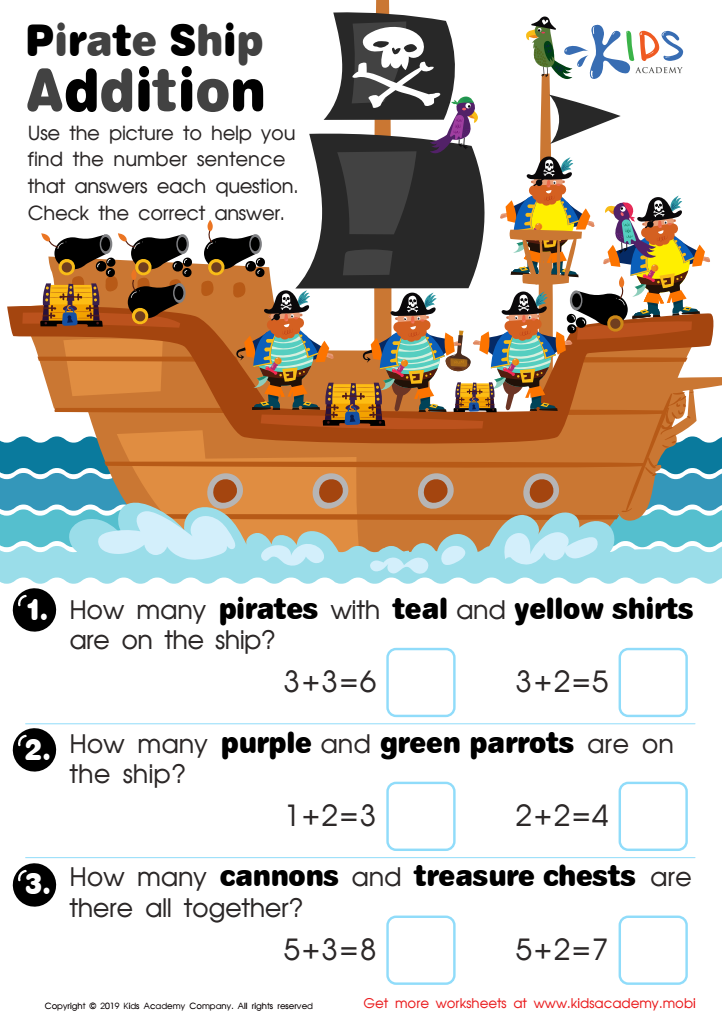

Pirate Ship Addition Worksheet
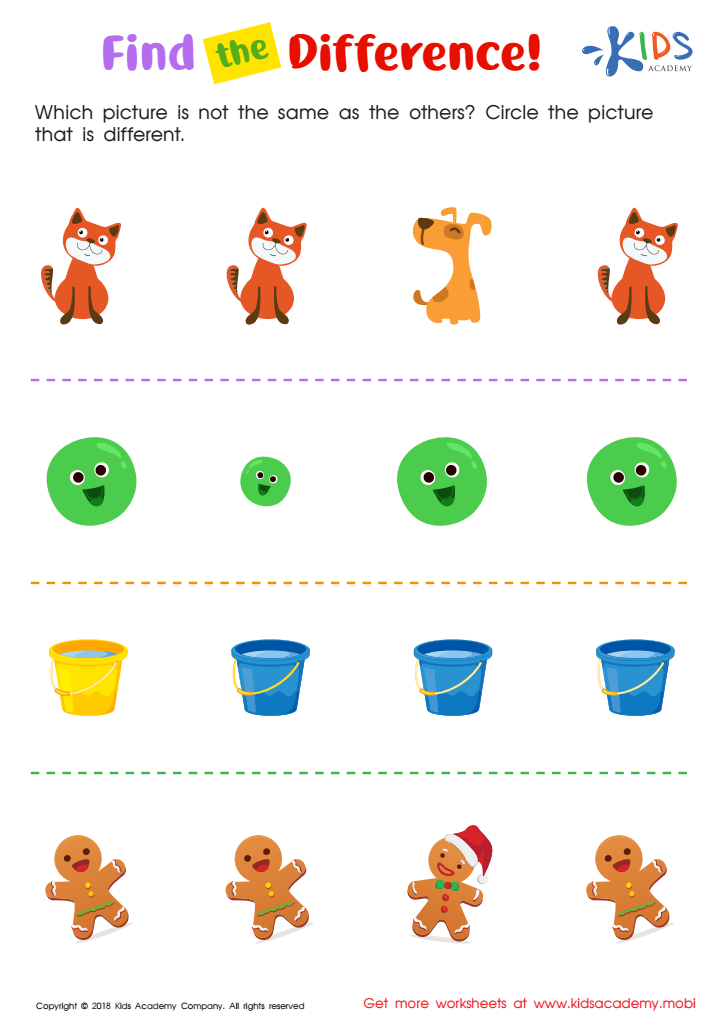

Find the Difference Worksheet
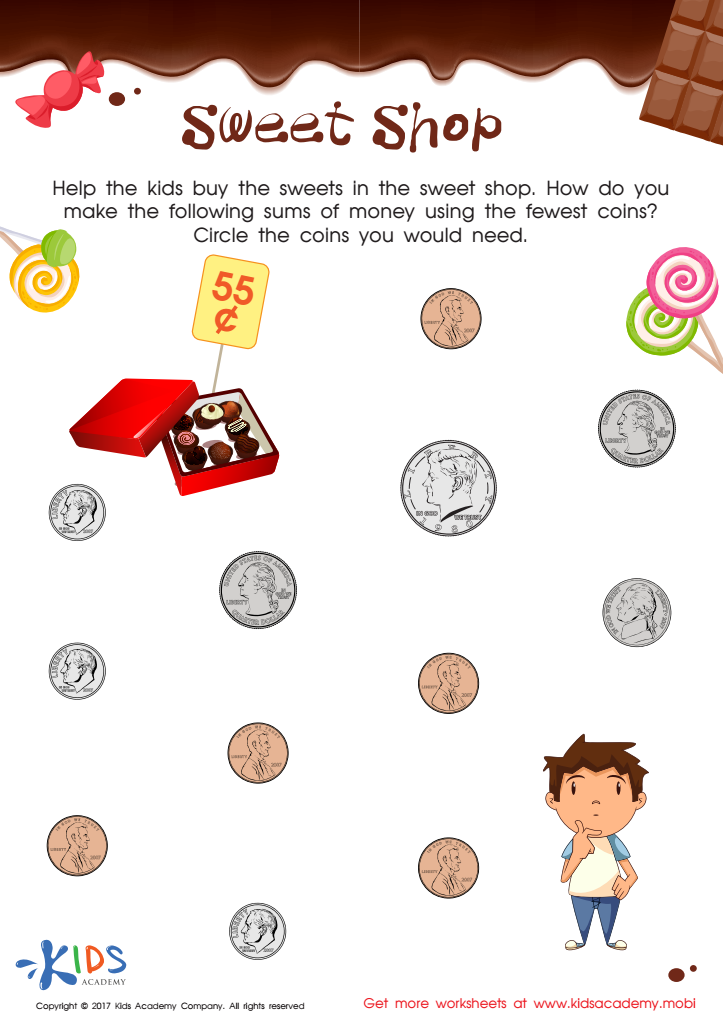

Sweet Shop – Counting Coins Worksheet
Developing problem-solving abilities in young children, particularly in the context of math for ages 3-4, is crucial for numerous reasons. At this age, children are naturally curious and eager to explore. Engaging them in math-focused activities fosters critical thinking, enhances cognitive development, and promotes early mathematical awareness. Parents and teachers play a vital role in shaping these skills by creating a conducive learning environment that encourages exploration, experimentation, and reasoning.
Problem-solving abilities in math help children understand patterns, relationships, and basic numerical concepts, laying the foundational skills necessary for future mathematical success. These skills also translate beyond the classroom, equipping children to handle everyday challenges. As they learn to approach problems strategically, they build resilience and develop the confidence to tackle new and unfamiliar situations.
Additionally, early math skills are indicative of later academic achievement. Fostering such abilities at a young age promotes a positive attitude toward learning and evolves into a lifelong appreciation for exploration and discovery. Ultimately, by nurturing problem-solving skills in math, parents and teachers not only support early literacy in mathematics but also cultivate well-rounded, independent thinkers prepared to thrive in a complex world.
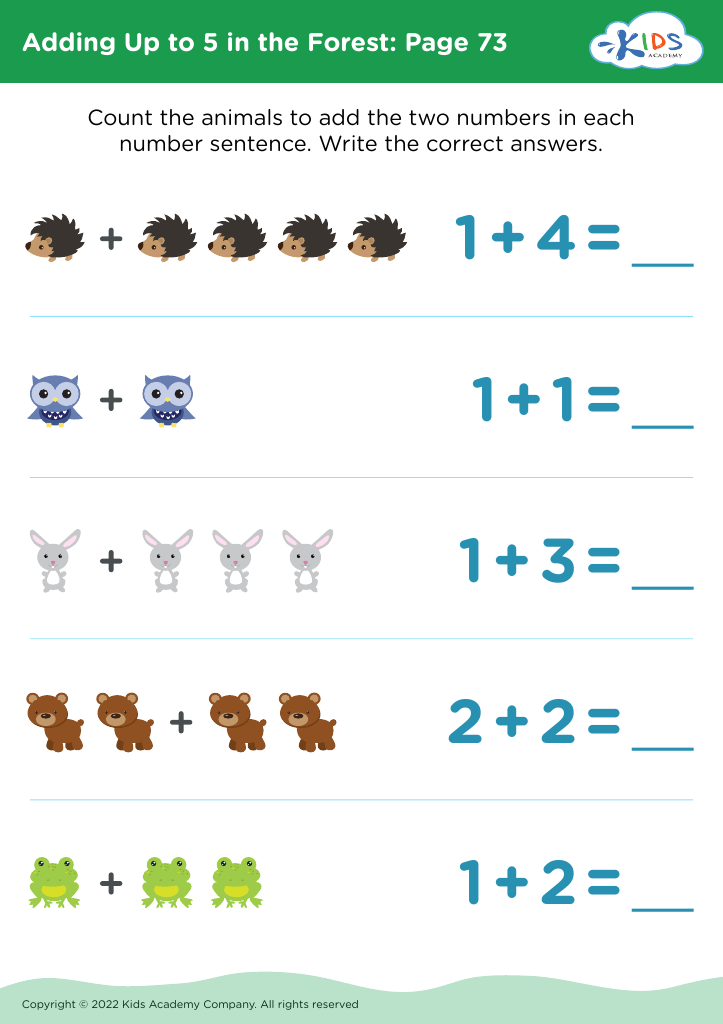
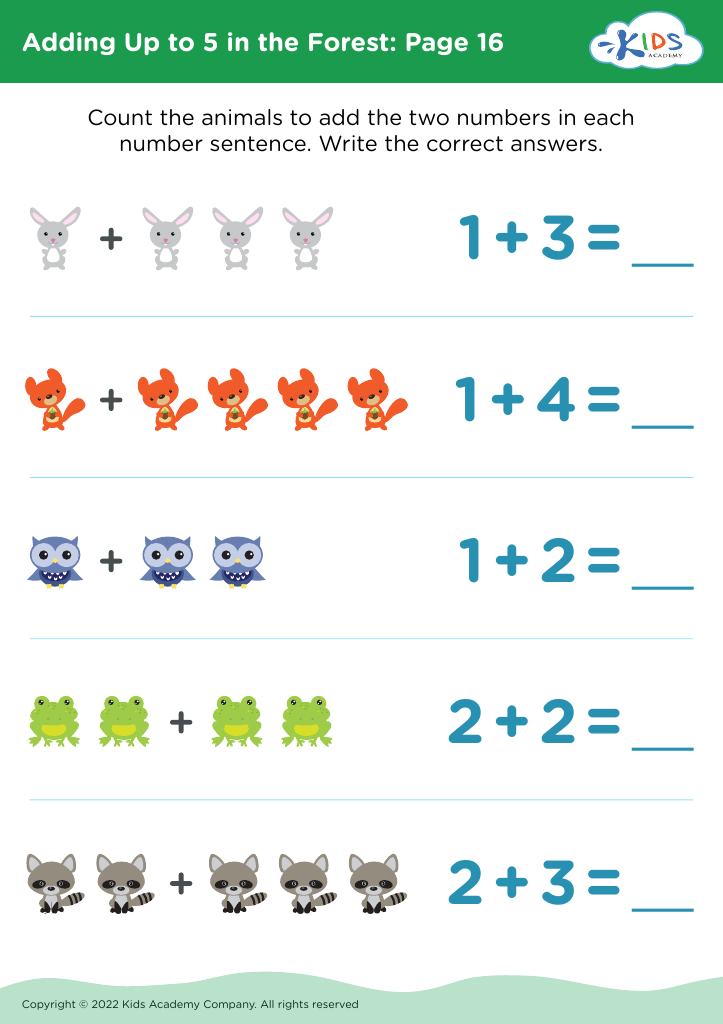
 Assign to My Students
Assign to My Students
